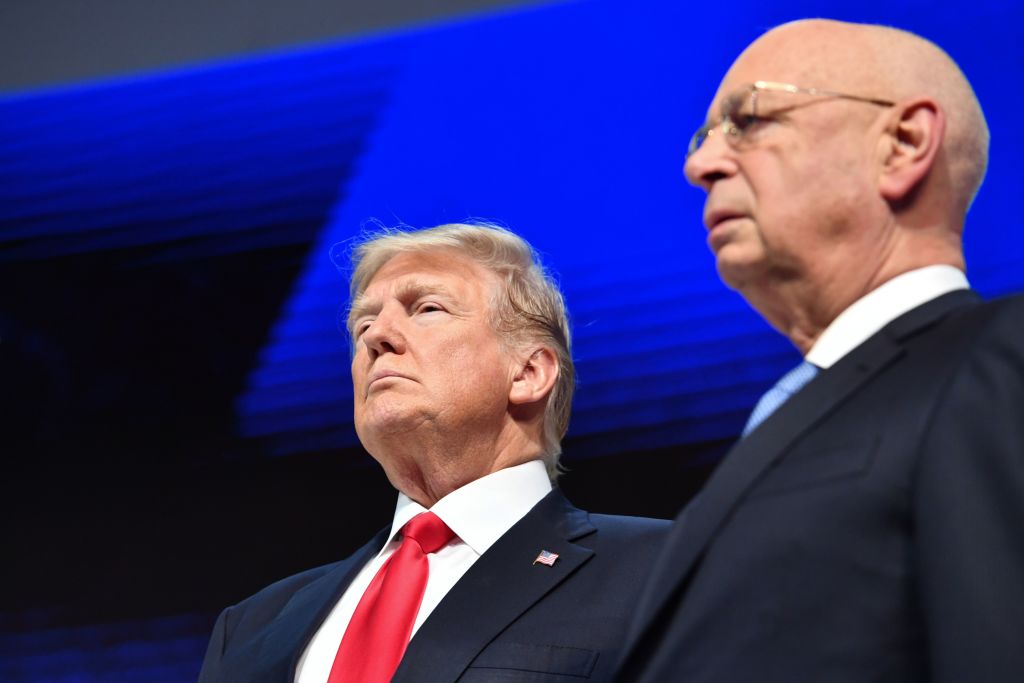Klaus Schwab’s departure from the helm of the World Economic Forum has been met with excitement by sections of the Right. As the figurehead for globalism and the elite adoption of a laundry list of progressive causes, the German became something of a bogeyman for conservatives around the world.
But the WEF’s reputation as a progressive champion — which it owes to highly publicised interventions such as the promotion of eating insects and the promise that future generations will “own nothing and be happy” — misses the bigger picture.
The executive board, led by WEF President and Norwegian conservative Børge Brende, has taken “full executive responsibility” over the past year, according to Schwab. And Schwab himself, a millionaire with strong ties to the world’s financial elites, is more conservative than his reputation might suggest, particularly on economic issues.
“Klaus has always been close to the Christian Democrats in Germany. So, politically, that’s where it has always been: centre-right. The President [Brende] is a conservative Norwegian politician, most definitely not a socialist,” a Davos insider told UnHerd.
Schwab’s exit is unlikely to prompt any meaningful changes in the near future, according to the insider. The WEF founder may be stepping down from his executive role, but he’ll continue to serve as non-executive chairman and there’s an expectation that he’ll still have considerable sway for years to come. “I very much doubt [his stepping down] means much until he gives up sitting in the office as you walk in the door,” the source claimed. “Kissinger kept going that long.”
Peter Goodman, global economics correspondent at the New York Times and author of Davos Man: How the Billionaires Devoured the World, seems to agree. Speaking to UnHerd, he questioned the authenticity of Davos’s progressive image: “It’s always been ridiculous that you’ve got this institution that operates under the mantra ‘committed to improving the state of the world’ while gathering the ultimate beneficiaries of the status quo in his village in Switzerland.”
Goodman added: “I think this forum will become less and less relevant. It’s been clear for years that there’s a huge gap between this very idealistic rhetoric that comes out of the forum, and the reality that it’s an institution that is engineered to maintain the status quo.”
Despite — or perhaps because of — its reputation as a liberal behemoth, the WEF has publicly taken a Rightward shift in the past few years, with insiders attempting to build bridges with Republicans in the US and pressing Schwab to move to the centre. The conference dropped the use of “ESG” and reduced its use of the word “diversity” in its programmes in 2024, according to Semafor. The WEF’s oil industry partners have also pushed the forum to ease its focus on climate.
The 2024 WEF meeting in Davos included a panel featuring Kevin Roberts, President of the Heritage Foundation, a Washington-based conservative think tank. He defended Donald Trump and criticised what he characterised as elite talking points — arguments that downplay the costs of immigration, climate policy and crime for the average person — and told attendees that they were “part of the problem”.
Roberts expects that Schwab’s departure will bring about no significant changes, and strongly rejects the idea that the WEF’s liberal agenda is merely window-dressing for preserving the status quo. Rather, he suspects that the forum’s apparent efforts to modify its stances are part of a cynical effort to make inroads with conservatives. He predicts that Schwab will eventually be replaced with a moderate in an attempt to curry favour with Republicans, perhaps in anticipation of a Trump win in November.
“I think the good news, the silver lining of all of this, is that the Davos set has overplayed their hand, and the game’s up,” Roberts told UnHerd. “Many people know that if you’re going to go there, you’ve got to go read them the riot act, because otherwise there’s no way that you can be a centre-right leader and be taken seriously, at least in the United States, if you’re playing their game.”











Join the discussion
Join like minded readers that support our journalism by becoming a paid subscriber
To join the discussion in the comments, become a paid subscriber.
Join like minded readers that support our journalism, read unlimited articles and enjoy other subscriber-only benefits.
Subscribe